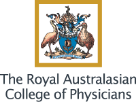What is Cancer Rehabilitation?
Cancer rehabilitation is a comprehensive and personalised program that focuses on improving the physical and emotional well-being of individuals who are undergoing or have completed cancer treatment. It addresses the challenges and side effects of cancer and its treatments, with the goal of enhancing functional ability and overall quality of life.
Benefits of Cancer Rehabilitation:
- Improved Physical Function: Research has shown that cancer rehabilitation can lead to significant improvements in physical function and mobility. Patients who participate in rehabilitation programs experience enhanced muscle strength and endurance, as well as improved balance and coordination.
- Reduction in Fatigue: Cancer-related fatigue is a common and distressing symptom experienced by many patients. Studies have indicated that cancer rehabilitation can help reduce fatigue levels, leading to increased energy and improved daily functioning.
- lymphoedema Management: lymphoedema, swelling that occurs due to damage to the lymphatic system during cancer treatment, can be effectively managed through specialised rehabilitation techniques. Early intervention and proper management can lead to a reduction in lymphoedema-related symptoms and complications.
- Psychological Support: Cancer rehabilitation programs often include counselling and emotional support to address the psychological impact of cancer and its treatments. Patients benefit from reduced anxiety and depression, leading to better overall mental well-being.
- Enhanced Quality of Life: Engaging in cancer rehabilitation has been associated with an improved overall quality of life. It enables patients to maintain independence, engage in meaningful activities, and achieve a sense of normalcy during and after cancer treatment.
Components of Cancer Rehabilitation:
Your cancer rehabilitation program may include the following components:
- Physiotherapy: Targeted exercises and therapies to improve physical function, strength, and mobility.
- Occupational Therapy: Strategies to adapt daily activities and enhance functionality.
- Pain Management: Techniques to address cancer-related pain and discomfort.
- lymphoedema Management: Specialised therapies to manage and reduce lymphoedema symptoms.
- Emotional Support: Counselling and support to address the emotional impact of cancer.
Importance of Cancer Rehabilitation:
Cancer rehabilitation plays a crucial role in helping patients cope with the challenges of cancer and its treatments. It can significantly enhance physical function, reduce treatment-related side effects, and promote overall well-being during the cancer journey.
Living with Cancer:
Living with cancer may require adjustments to your lifestyle and daily routines. Our cancer rehabilitation team is here to provide guidance and support as you navigate through your treatment and recovery process.
Please feel free to reach out if you have any questions or concerns about cancer rehabilitation or any aspect of your cancer care.







